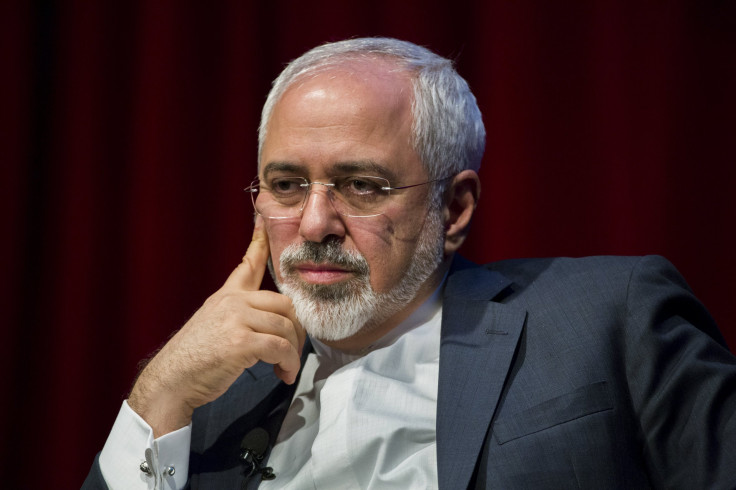Iran Nuclear Agreement 'Best Anyone Can Get': Iran Foreign Minister Mohammad Javad Zarif

The preliminary nuclear agreement reached earlier this month between Iran and six other world powers, led by the United States, is “the best anyone can get,” the Iranian foreign minister said on Wednesday in New York City. Mohammad Javad Zarif emphasized Iran’s desire to complete the deal while trying to dispel any concerns that Iran might go back on its promises.
“It’s the best anyone can get,” Zarif said, speaking at New York University at an event organized by New America, a New York public policy institute, and NYU’s Center on International Cooperation. “Whether we can live with the balance, only time will tell.”
The deal struck last month in Lausanne, Switzerland, between the Iranian government and the six world powers known as P5+1 set up the framework for a nuclear agreement that could see a significant reduction in Iran’s nuclear capabilities in exchange for a lifting of sanctions that have been crippling the Islamic Republic’s economy for decades. Now the parties must iron out and agree on specific details within this framework before concluding any such deal -- and that will be no easy task, according to Zarif.
Zarif was in town this week to meet with U.S. Secretary of State John Kerry and discuss the chances of making the next, June 30 deadline. Before the pair met on Monday, Kerry issued a statement that said "the hard work is far from over and some key issues remain unresolved."
Kerry’s Iranian counterpart echoed that statement on Wednesday, adding that “almost everything” remains to be discussed in detail, but that these are issues that “can be resolved.”
Among the key issues on the table is the need for transparency and accountability from Iran regarding its nuclear program, in accordance with the International Atomic Energy Agency, the United Nations agency charged with monitoring nuclear activity. Since the negotiations began, there has been speculation that Iran had not disclosed all of its nuclear facilities.
One such facility was thought to be at the Parchin Military Complex, south of Tehran, where a major explosion was reported last year. The preliminary agreement stipulated that inspectors be allowed access to the facility.
“You will have all the transparency you need,” Zarif said. “If you’re looking for a smoking gun, you’re going to wait a long, long time,” he said in reference to the possibility that inspectors may find evidence that Iran is trying to build a nuclear weapon instead of just using the program for civilian energy.
Zarif brushed off the American concern that Iran may fail to abide by the deal and still be able to benefit from sanctions relief, stating that throughout negotiations the U.S. has been the one to go back on its word, not Iran. Since negotiations resumed earlier this year, Iranian officials have criticized the U.S. for making changes and additions to their original agreement structure.
“There is a lot to be desired on how the U.S., particularly the U.S. Treasury, dealt” with the negotiations, Zarif said. Speaking in English, he added that there had been “many instances where I took the heat when there was a clear American lack of good faith.”
Negotiations are “a human process, not a divine process with fixed deadlines,” Zarif said in reference to the possibility of meeting the June 30 deadline. “Yet even the divine can change,” he added, garnering a universal chuckle from the audience.
© Copyright IBTimes 2024. All rights reserved.












